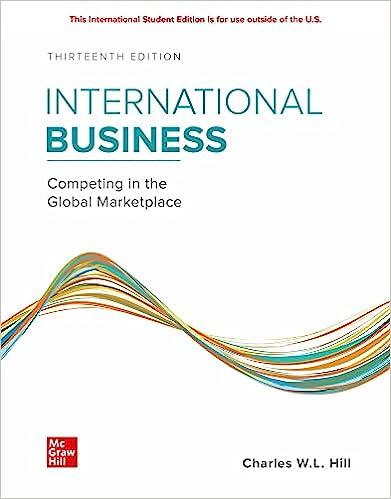The desert kingdom of Saudi Arabia is a rarity in the modern world, an absolute monarchy whose
Question:
The oil sector accounts for around 87 percent of government revenues, 42 percent of GDP, and 90 percent of export earnings. In times of high oil prices, the Saudi government has used oil revenues to finance a sprawling government apparatus and to subsidize energy prices, which are among the lowest in the world. In 2014, however, oil prices collapsed, wiping out an annual government surplus. In 2014, the government deficit ballooned to 15 percent of GDP, and it hit 20 percent of GDP in 2016, forcing the country to issue more debt and draw down its foreign exchange reserves. Higher oil prices improved the situation in 2017 and 2018, but the crisis exposed the vulnerability of Saudi Arabia to a fall in oil prices.
To compound matters, Saudi Arabia has a young population—some 70 percent of the population is under the age of 30—and unemployment is high at 12 percent, a combination of factors that many see as a recipe for social unrest. The high unemployment reflects the fact that while there are jobs available outside of the government sector, most of them are taken by low-paid foreign workers, who account for 80 percent of the labor force.
Following the death of his brother, in January 2015 Salman bin Abd al-Aziz Al Saud became King. Breaking with tradition, the aging King quickly devolved substantial power to his son, crown prince Muhammad bin Salman (commonly known as “MBS”). The young crown prince articulated a different vision for Saudi Arabia. Known as Vision 2030, this calls for reducing the kingdom’s dependence on oil revenues, privatizing the state-owned oil company Saudi Aramco, cutting energy and water subsidies, growing the private sector, investing $500 billion in a new city called NEOM that will serve as a hub for private and foreign investment, and introducing a value-added tax in order to close the government deficit. At the same time, the crown prince is seeking to loosen the stifling moral codes that have limited cultural life and to promote a “moderate Islam open to the world and all religions.”
Not surprisingly, this vision has met with resistance, particularly from members of the sprawling royal family and conservative clergy who have benefited from the status quo. To counter this, the crown prince consolidated his power, removing members of the royal family that disagreed with him and putting his allies in positions of power. This culminated in an unprecedented shake-up in November 2017 when scores of people, including some of the most powerful princes in the kingdom, were arrested in a massive anticorruption sweep and jailed in, of all places, Riyadh’s opulent Ritz Carlton.
Whether this power grab will help the crown prince achieve his goals for Saudi Arabia remains to be seen. The government has had to backtrack on plans to reduce subsidies after strong resistance from the population, but it did introduce a 5 percent value-added tax in January 2018.
Question
1. What long-term economic and political problems does Saudi Arabia face?
2. How might the reforms proposed by Muhammad bin Salman potentially address these problems? Who will gain from these reforms? Who might object and push back against them?
3. Current plans for Saudi Aramco call for the state-owned oil company to be privatized. An initial public offering (IPO) is tentatively scheduled for 2021. What are the potential benefits to Saudi Arabia of privatizing Saudi Aramco? Is there a downside?
4. Is it morally correct for international businesses to invest in a country that denies basic rights to women?
5. Is it morally correct for international businesses to invest in an autocratic country where the current leader has been implicated in ordering the murder of one of his critics?
Step by Step Answer:

ISE International Business Competing In The Global Marketplace
ISBN: 9781260575866
13th International Edition
Authors: Charles Hill





